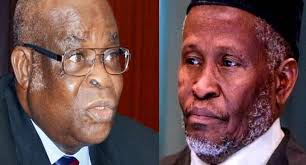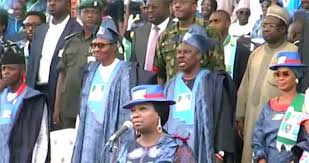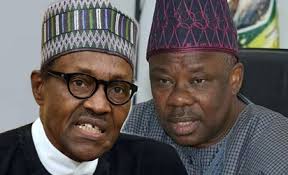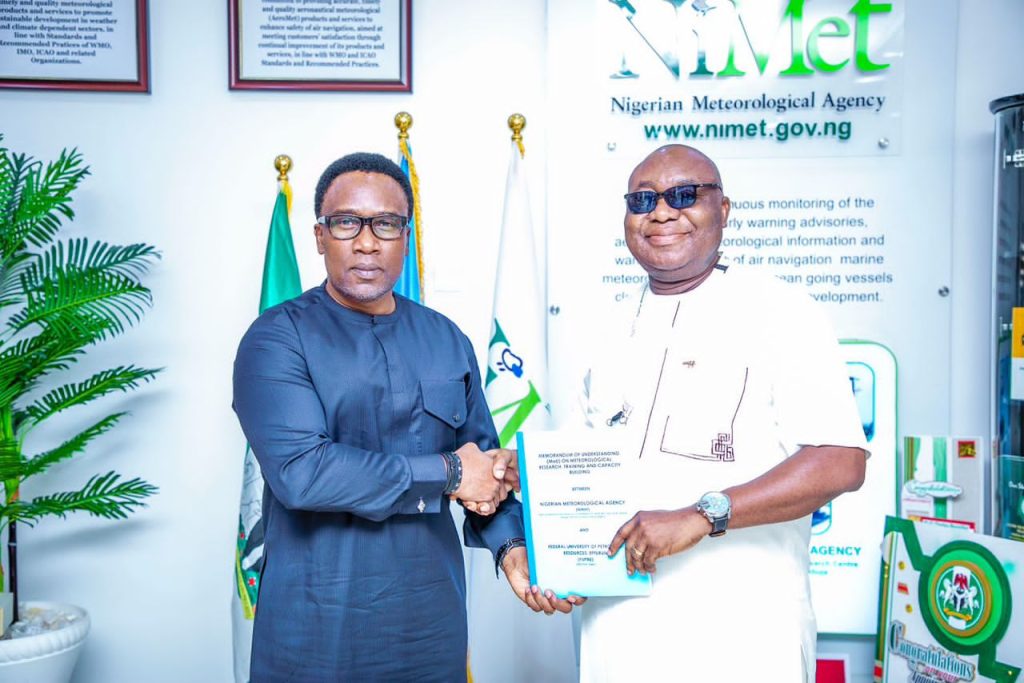Eniola Olayemi
Workers earning more than N30, 000 – the likely new minimum wage – will have their pay renegotiated, the President said yesterday.
The new pay, it seems, will not be for all cadres of workers.
It is important to prepare the minds of those to be affected — that a windfall is not on the way — so as not to be caught unawares, President Muhammadu Buhari said.
The government will begin talks with the workers after the new minimum wage Bill must have been passed into a law.
The President spoke at the inauguration of the Technical Advisory Committee on the Implementation of a New National Minimum Wage.
The development came barely 24 hours after the government and Labour agreed that a New National Minimum Wage Bill will be sent to the National Assembly on or before January 23.
The unions are demanding N30, 000 for the least paid worker. But governors are willing to pay N22, 500 and the Federal Government is offering N24, 000.
The President named Bismarck Rewane as head of the panel, which he inaugurated at the Council Chamber, State House, Abuja, before the weekly Federal Executive Council (FEC) began.
Members of the committee have been drawn from the public and the private sector.
It has a month to complete its work and summit its report and recommendations. The members are: Federal Inland Revenue Service (FIRS) Chairman Babatunde Fowler, ex-FIRS boss Mrs. Ifueko Omoigui-Okauru, Dr Ayo Teriba and Prof. Akpan Ekpo.
Others include: Budget Office Director-General Ben Akabueze, who is the secretary of the committee, representative of the Nigeria Governors Forum (NGF); National Salaries, Incomes and Wages Commission Chairman Richard Egbule; Permanent Secretary, Service Welfare Office of the Head of Service of the Federation, Mrs. Didi Walson-Jack; Permanent Secretary, General Service Office, Office of the Secretary to the Government of the Federation (SGF), Olusegun Adekunle; Permanent Secretary, Ministry of Finance, Dr. Mahmoud Isa-Dutse; Permanent Secretary, Ministry of Budget and National Planning, Olajide Odewale; Permanent Secretary, Ministry of Labour Mrs. Ibukun Odusote, and Solicitor-General of the Federation and Permanent Secretary, Ministry of Justice, Mr. Dayo Apata.
The other members are: Special Adviser to the President on Economic Matters, Office of the Vice President, Dr. Adeyemi Dipeolu; Deputy Governor of the Central Bank of Nigeria, Economic Policy, Dr. Joseph Nnanna; Accountant-General of the Federation, Ahmed Idris; Director-General, Debt Management Officer, Ms. Patience Oniaga; Director-General, National Institute of Social and Economic Research, Dr. Folarin Gbadebo-Smith; Statistician-General, National Bureau of Statistics (NBS), Dr. Yemi Kale; Mrs. Aisha Hamad, Mamman Garba and Tunde Lawal.
Pointing out that the last time Nigeria’s national minimum wage was reviewed was in 2011, Buhari said that it was evident that a review was necessary, despite the prevailing fiscal challenges.
He said: “This is why I constituted the Tripartite Committee of government (federal and states), the Organised Private Sector (OPS) and Labour to consider the national minimum wage and make recommendations to the government for its upward review.
“That committee has since submitted its report with some recommendations. We are currently working on the final steps that will lead to the submission of a National Minimum Wage Amendment Bill to the National Assembly.
“I want to make it clear that there is no question about whether the National Minimum Wage will be reviewed upwards. I am committed to a review of the Minimum Wage.
“Also, it is important to explain that even though the subject of a national minimum wage is in the exclusive legislative list, we have been meeting with the state governors because it is imperative that the Federal Government carries the state governments along in determining any upward review of the minimum wage for workers.
“This is especially necessary considering the prevailing public sector revenue challenges, which have made it extremely difficult for some of the governments to pay workers as and when due.
“As you know, we, at the federal level, have made adequate provision for the increase in the minimum wage in our Budget 2019 proposals which we submitted to the National Assembly.
“Therefore, we will be able to meet the additional costs that will be incurred in moving up all personnel who are currently earning below the new minimum wage.
“However, we anticipate that after the new minimum wage has been passed into law, we will be going into negotiations for salary review for all the workers who are already earning above the new minimum wage. It is therefore important that we are properly prepared to meet these demands.
“We must therefore look at ways of implementing these consequential wage adjustments in a manner that does not have adverse effects on our national development plans, as laid out in the Economic Recovery and Growth Plan (ERGP). The ERGP sets appropriate targets for levels of capital expenditure, public debt, inflation and employment among others.
“It is absolutely important that the implementation of a new minimum wage does not adversely affect these targets, and thereby erode the envisaged gains for the workers.
“It is against this background that I have set up a Technical Committee to advise the government on how best to fund, in a sustained manner, the additional costs that will arise from the implementation of the consequential increases in salaries and allowances for workers currently earning above the new minimum wage.”
Buhari said the committee will be chaired by an economist and financial expert, Rewane, with other experienced economists and administrators from the private sector working with government officials.
The committee is to advise the government on how to successfully bring about a smooth implementation of impending wage increases and identify new revenue sources, and areas of existing expenditure from where some savings could be made in order to fund the wage increases without adversely impacting the nation’s development goals as set out in the ERGP.
It is also to “propose a work plan and modalities for the implementation of the salary increases, any other suggestions that will assist in the implementation of this, and future wage increases”.
“Given the urgency of this exercise, the Committee is expected to complete its deliberations and submit its report and recommendations within one month today.
“It is now my pleasure to formally inaugurate the Technical Advisory Committee on the Implementation of an Increase in the National Minimum Wage.”
President Buhari had during the budget proposal presentation promised a new minimum wage which, he said, will help maintain jobs for the teeming unemployed.

 News5 years ago
News5 years ago
 News5 years ago
News5 years ago
 News5 years ago
News5 years ago
 News5 years ago
News5 years ago
 Politics5 years ago
Politics5 years ago
 Politics5 years ago
Politics5 years ago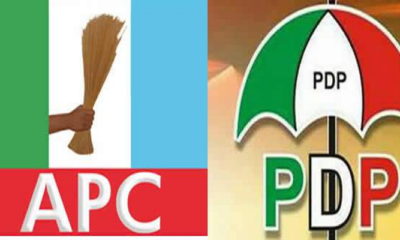
 Politics5 years ago
Politics5 years ago








